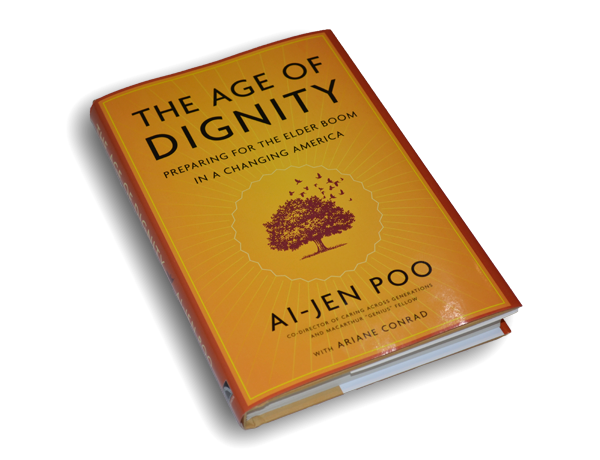Book of the Month: March 2015
 As the American lifespan continues to extend longer than ever, our oldest demographics — currently at their largest numbers in history — are projected to keep growing exponentially. The consequent expansion of geriatric medical needs is already putting pressures on our current health care system, yet the reality for many seniors and caregivers is of mounting out-of-pocket expenses and specific care needs that may not be met because of availability or cost. In our book of the month for March, activist, labor organizer, and recent MacArthur Fellowship grant recipient Ai-jen Poo conducts a thorough assessment of elder care on a policy, provider, and personal level, and makes a vigorous case for change.
As the American lifespan continues to extend longer than ever, our oldest demographics — currently at their largest numbers in history — are projected to keep growing exponentially. The consequent expansion of geriatric medical needs is already putting pressures on our current health care system, yet the reality for many seniors and caregivers is of mounting out-of-pocket expenses and specific care needs that may not be met because of availability or cost. In our book of the month for March, activist, labor organizer, and recent MacArthur Fellowship grant recipient Ai-jen Poo conducts a thorough assessment of elder care on a policy, provider, and personal level, and makes a vigorous case for change.
Titled The Age of Dignity, the book first makes a forceful statement about the shortcomings of the current U.S. approach to aging and end of life. Poo establishes the notion of the ‘elder boom’: Americans are living longer, but with long life comes higher incidences of serious or chronic diseases requiring complex and costly management, sometimes for years. But in the current health care scenario, costly hospitalizations can take a front seat to better disease management. The system cannot keep up with this intensive need or cost; instead, the pressure shifts to caregivers to fill the precarious gaps in expenditure or hands-on care. Dubbed the ‘sandwich generation,’ many of these caregivers are still raising children of their own and/or working full-time — burning the candle at both ends, yet still feeling obligated to do it all for their parents. If they are no longer able to singlehandedly provide care, the next step for many of the sandwich generation is to seek placement in long-term care or skilled nursing institutions, which can be costly and are not always equipped to provide dignified care.
The author paints a dramatic picture of elder care in the U.S., drawing on the late-life experiences of her grandparents and extended family as striking examples, as well as numerous anecdotes collected over the course of her work. As a longtime advocate for domestic workers and home health aides, director of the National Domestic Workers Alliance, and co-founder of Caring Across Generations, she also shines a light on challenges facing many professional caregivers such as home health aides.
Poo next bookends her case for a sea change in elder care with appeals for ‘cultural, behavioral, and structural’ shifts toward a more supportive and sustainable approach to aging. Her proposals range from community-level involvement to individual pursuit of purpose to policy changes that may enable aging in place, such as a stronger emphasis on home health care to keep seniors healthier and safer at home.
No matter what the future holds for U.S. health care, there are aging adults and caregivers navigating the current system every day. Whether readers are anticipating future care, learning to help their loved ones manage chronic disease, or already weighing complex financial and care decisions, this may be an eye-opening read. This can be a useful primer to help readers understand what responsibilities, challenges, and emotions they may encounter as they or their loved ones age; what’s more, the book also includes generous appendices and notes with further resources.
The Age of Dignity: Preparing for the Elder Boom in a Changing America
Ai-jen Poo, with Ariane Conrad
The New Press
240 pages, $25.95

